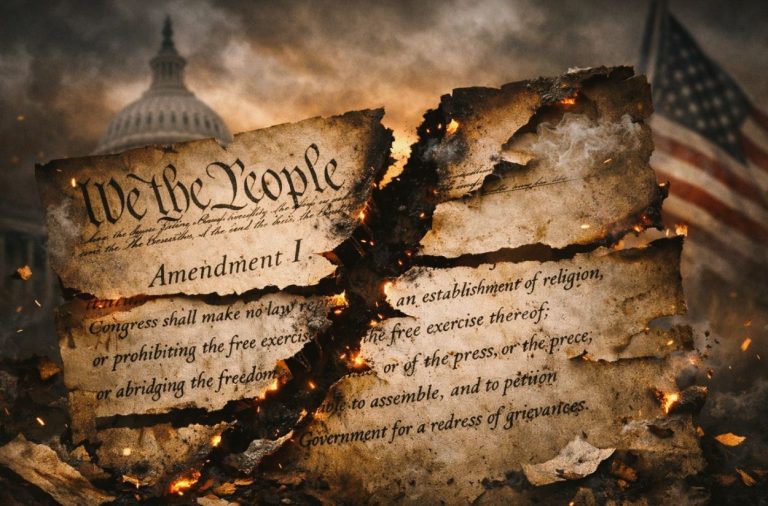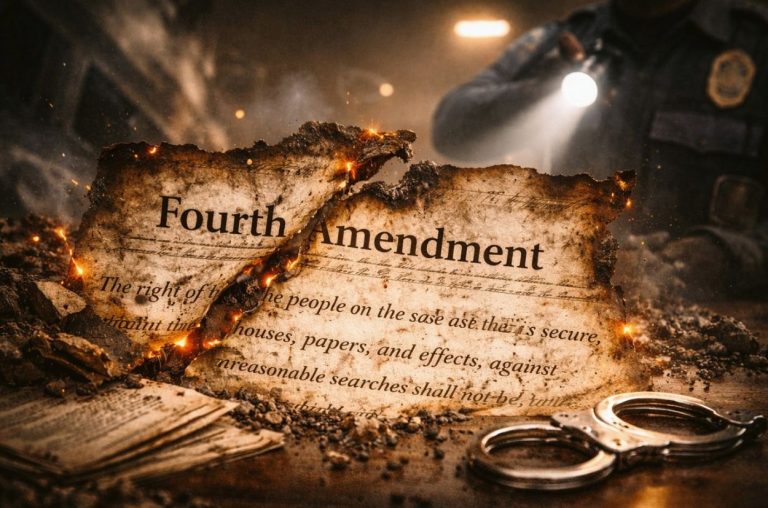

In the end, the way forward is neither nostalgia for the Enlightenment nor surrender to irrationality. It is humility, a recognition that reason is fragile and must be cultivated, not assumed.

By Matthew A. McIntosh
Public Historian
Brewminate
Introduction
When the philosophers of the Enlightenment placed reason at the center of human progress, they imagined citizens who could deliberate with clarity, weigh evidence, and govern themselves through rational consent. John Locke’s vision of the social contract rested on individuals capable of understanding their own interests and forming government by mutual agreement. Jean-Jacques Rousseau extended this faith to the collective, trusting that a citizen body could express a “general will” aimed at the common good.
Three centuries later, that optimism feels increasingly out of place. Behavioral economics, cognitive psychology, and the digital information age have shown that voters do not act like Enlightenment reasoners. We are not detached calculators of the common interest but emotional, biased, and easily manipulated participants in an attention economy that rewards outrage over evidence. The Enlightenment dream of the rational electorate, once the cornerstone of liberal democracy, now struggles to survive in a world where misinformation moves faster than truth and where identity often outweighs reason at the ballot box.
The collapse of this ideal does not mean the Enlightenment failed. It means its faith in reason met the reality of human nature, and lost.
The Enlightenment Promise: Reason and Consent
When John Locke published his Second Treatise of Government in 1689, he grounded political legitimacy in human reason. Individuals, he argued, could perceive the natural laws that govern their existence and consent to governments that protected life, liberty, and property. Authority, in Locke’s design, was not divine but rational, a contract built on deliberation rather than fear or inheritance. The assumption was clear: rational beings, if free and informed, could be trusted to rule themselves. As the Stanford Encyclopedia of Philosophy notes, Locke’s entire framework depends on the capacity of individuals to recognize the law of nature and to act accordingly.
Jean-Jacques Rousseau reimagined this vision in The Social Contract (1762), proposing that citizens, guided by reason, could transcend private interest and form a collective “general will.” In his view, freedom meant obedience to a law one prescribed for oneself, a moral autonomy inseparable from rational deliberation. As Encyclopædia Britannica explains, Rousseau believed that the general will reflected the true interest of the community, accessible through reasoned participation rather than coercion or passion.
Both thinkers anchored democracy in cognition and dialogue. If people reasoned together, truth would emerge; if they deliberated, consensus would follow. This was the Enlightenment wager: that knowledge could overcome superstition, and reason could outlast emotion.
Yet that wager depended on fragile conditions: education, shared facts, and good faith. It imagined a world where citizens had both access to reliable information and the inclination to use it. The Enlightenment promise of consent and civic reason remains one of humanity’s most ambitious experiments, but as modern behavioral science reveals, it also rests on a psychological fiction: that humans act rationally when politics calls them to decide.
Behavioral Economics and the Limits of Reasoning in Voting
The modern revival of rational choice theory once seemed to vindicate the Enlightenment’s optimism. Economists and political scientists modeled voters as calculating agents, self-interested but consistent, weighing costs and benefits before casting a ballot. In theory, democracy became a grand marketplace of ideas where reason guided choice. Yet the field of behavioral economics has dismantled that illusion piece by piece. Decades of research have shown that human beings are not the cool logicians imagined by Locke or Rousseau, nor by twentieth-century rational-actor models. They are storytellers, shortcut-takers, and deeply emotional creatures who often reason backward, from feelings to justifications rather than the other way around.
The evidence is overwhelming. Daniel Kahneman and Amos Tversky’s pioneering studies of cognitive bias demonstrated that people rely on heuristics, mental shortcuts that simplify complex decisions but lead to systematic errors. Voters do not weigh platforms with detached logic; they respond to framing, fear, and identity cues. According to research published in Trends in Cognitive Science, these cognitive distortions influence how individuals process political information, often leading to confirmation bias and motivated reasoning. When new evidence contradicts existing beliefs, many voters simply reject it to preserve psychological comfort.
This irrationality is not confined to misinformation. Even when facts are widely available, citizens interpret them through the lens of group loyalty. Studies summarized in the Annual Review of Political Science show that political identity now functions as a “super-ordinate” social attachment, shaping perception itself. Voters who identify strongly with a party or ideology often rate identical policies differently depending on which side is said to support them. Emotional commitment, not rational assessment, drives response. In effect, modern politics operates less like a reasoned debate and more like team sport.
Behavioral economists have also exposed a subtler paradox: the act of voting itself defies pure rationality. As The American Political Science Review has long noted, the cost of becoming informed and casting a ballot typically outweighs the infinitesimal chance of influencing an election’s outcome. The “paradox of voting” suggests that participation depends on moral duty, habit, or social identity, not reasoned cost-benefit analysis. Citizens vote because it feels right, not because it is rational. This emotional substrate, far from being an aberration, is the glue that keeps democratic participation alive.
Taken together, these findings reveal the fundamental tension between Enlightenment theory and empirical reality. Democracy still depends on consent, but that consent no longer looks like a meeting of rational minds. It is filtered through bias, identity, and emotion, forces that Locke and Rousseau could scarcely have imagined but that now define the political landscape. The question is no longer whether citizens can be rational, but how societies can endure knowing that they are not.
The Information Environment and Emotional Politics
If the Enlightenment’s vision falters on the limits of human reason, it collapses entirely in the modern information ecosystem. The digital age has unleashed a torrent of data that far exceeds any citizen’s capacity to process it. Once, access to knowledge was the Enlightenment’s promise of liberation; now, abundance itself has become the problem. Algorithms designed to maximize engagement exploit the very biases behavioral economics describes, rewarding outrage, fear, and tribal loyalty over reflection. As the Pew Research Center has reported, nearly half of Americans regularly encounter political misinformation online, and most struggle to distinguish it from verified reporting.
Social media has transformed politics into a theater of emotion. Anger spreads faster than reason, falsehoods outperform facts, and virality substitutes for credibility. A Science study from the Massachusetts Institute of Technology found that false news stories on Twitter were 70 percent more likely to be retweeted than true ones, a staggering demonstration of emotional contagion in digital form. This economy of attention rewards reaction, not reflection, and turns public discourse into a perpetual feedback loop of affect. What Locke saw as a rational public sphere, and Rousseau as a forum for discerning the general will, has morphed into a marketplace of sensation.
The consequences extend beyond polarization. The emotionalization of information erodes the very foundation of legitimacy: trust. When every claim feels subjective and every institution suspect, the idea of a shared reality disintegrates. As researchers at the University of Oxford’s Reuters Institute note, declining trust in news and authority figures has created a “post-truth” environment where feelings routinely outrank facts. Citizens may still believe in democracy, but they no longer agree on what is true, making rational deliberation nearly impossible.
At the same time, emotional politics has become electorally effective. Campaigns now mobilize voters through fear of loss or resentment toward outsiders, not policy coherence. Behavioral scientists at the London School of Economics describe this as “affective polarization,” a deep-seated hostility toward opposing partisans that defines modern democracies more than ideological difference (lse.ac.uk). Voters may claim to defend principle, but they are more often defending identity. The result is not deliberation but dueling tribes fortified by algorithms.
In this environment, the Enlightenment’s rational citizen has been replaced by a networked consumer of information, guided by emotion and manipulated by design. The promise of self-government through reason collapses not through tyranny, but through seduction, the steady capture of attention by systems that know us better than we know ourselves.
Why the Enlightenment Ideal Keeps Collapsing
The Enlightenment ideal of rational self-government keeps breaking not because its logic was unsound, but because its anthropology was incomplete. Locke and Rousseau imagined that reason was a stable faculty, a compass guiding citizens toward truth once freed from superstition and fear. What they could not foresee was that reason itself is socially conditioned, neurologically bounded, and easily hijacked. Modern cognitive science confirms that emotion and intuition are not intrusions into reasoning but its foundation. As psychologist Jonathan Haidt has argued, moral judgment is more like a politician searching for votes than a scientist testing hypotheses. We rationalize instinct after the fact. The Enlightenment’s mistake was assuming we begin with reason rather than end with it.
History bears out the consequences. Each generation rediscovers faith in rational citizenship (through education reforms, print culture, civic institutions, or now digital literacy) only to find the same limits resurgent. From the propaganda wars of the twentieth century to today’s algorithmic echo chambers, emotion has always outpaced information. The Oxford Handbook of Political Psychology observes that affective responses often dominate deliberative ones in political judgment, a fact that undermines classical models of rational democracy. The pattern repeats: reason advances through institutions, emotion adapts through experience, and the cycle of collapse resumes.
The deeper failure, though, lies in the Enlightenment’s moral architecture. It treated knowledge as the guarantor of virtue. If people could only see clearly, they would act justly; ignorance, not inclination, was the obstacle. But behavioral economics exposes a darker consistency: we often know what is right and still choose otherwise. Nobel laureate Richard Thaler, whose work helped found the field, noted that “humans are predictably irrational.” Awareness of bias does not eliminate it; it merely describes the battlefield on which reason perpetually loses ground.
The collapse, then, is not a single event but an ongoing drift. The Enlightenment’s institutions (parliaments, universities, free presses) depend on shared norms of truth-seeking. Once those norms erode under the pressure of emotional politics and misinformation, the architecture still stands but the moral scaffolding falls away. Democracies begin to function procedurally while dying substantively. Citizens vote, courts convene, debates continue but the public reason those actions presume has already dissolved.
To say the ideal “keeps collapsing” is not to declare it dead. Rather, it shows that Enlightenment rationalism is less a permanent achievement than a discipline that must be renewed against human nature itself. Each generation inherits the same contradiction: we are animals who dream of being philosophers, and civilizations rise or fall depending on how long that dream can hold.
Consequences and the Way Forward
The collapse of Enlightenment rationalism carries consequences far beyond philosophy. When politics loses its foundation in reason, democracy becomes performance, a ritual stripped of substance. Elections still occur, but their outcomes reflect mood more than mandate. Public debate devolves into moral spectacle, and civic disagreement hardens into existential war. This emotional polarization erodes the capacity for compromise, producing negative partisanship in which citizens are motivated less by hope for their side than by hatred for the other. A system built on reasoned consent becomes one sustained by resentment.
The consequences extend to governance itself. Policy increasingly responds not to evidence but to the rhythms of outrage. Complex problems (climate change, inequality, artificial intelligence) require deliberation across ideological lines, yet the attention economy punishes nuance. Digital fragmentation undermines collective problem-solving by rewarding emotional mobilization over factual coherence. In this environment, truth loses its procedural home. Expertise, once the Enlightenment’s proud offspring, becomes a political identity among others.
Yet collapse also clarifies. If reason alone cannot sustain democracy, then democracy must learn to sustain reason. Behavioral science offers pragmatic lessons where philosophy faltered. Governments can design institutions that anticipate bias rather than deny it: citizen assemblies that encourage deliberation over partisanship, electoral systems that reward coalition-building, and education that trains not only intellect but self-awareness. Economist Cass Sunstein calls this “choice architecture,” structuring environments that make rational outcomes easier to reach without presuming rational actors.
Rebuilding reason also requires confronting the information economy itself. The Enlightenment printed pamphlets to spread ideas; our age must build algorithms that serve truth. Regulation of online platforms, transparency in political advertising, and public investment in trustworthy journalism are not technocratic luxuries; they are the new conditions of reasoned consent. Societies with stronger public-service media maintain higher resilience to misinformation and political cynicism, suggesting that epistemic health is measurable and political.
In the end, the way forward is neither nostalgia for the Enlightenment nor surrender to irrationality. It is humility, a recognition that reason is fragile and must be cultivated, not assumed. Locke and Rousseau gave us the framework for rational freedom; behavioral science reminds us of its limits. The challenge of the twenty-first century is to hold both truths at once: that reason is the foundation of liberty, and that liberty survives only when we design a world in which reason can breathe.
Conclusion
The Enlightenment wager was beautiful in its simplicity: that reason, liberated from fear, could anchor a just society. For a time, it worked. Science advanced, institutions flourished, and the idea of informed citizenship reshaped the world. But the same human nature that birthed reason also hungers for belonging, certainty, and validation, hungers that can be easily weaponized. The rational voter was never a reality; it was a moral aspiration, a story we told to keep ourselves honest.
That story is now in jeopardy. The flood of misinformation and the architecture of digital emotion have exposed the fault lines beneath Enlightenment democracy. Still, abandoning reason would be fatal. Civilization has no higher defense. What remains is the harder work of realism: to build systems that account for the mind’s frailty instead of pretending it does not exist, and to treat truth not as an inheritance but as a discipline.
The myth of the rational voter endures because we need it to. It is the faith that, even in a world governed by bias and noise, humanity can still choose clarity over chaos. The Enlightenment may have overestimated reason, but it was right about one thing: progress begins the moment we refuse to surrender to the irrational.
Originally published by Brewminate, 10.28.2025, under the terms of a Creative Commons Attribution-NonCommercial-NoDerivatives 4.0 International license.


